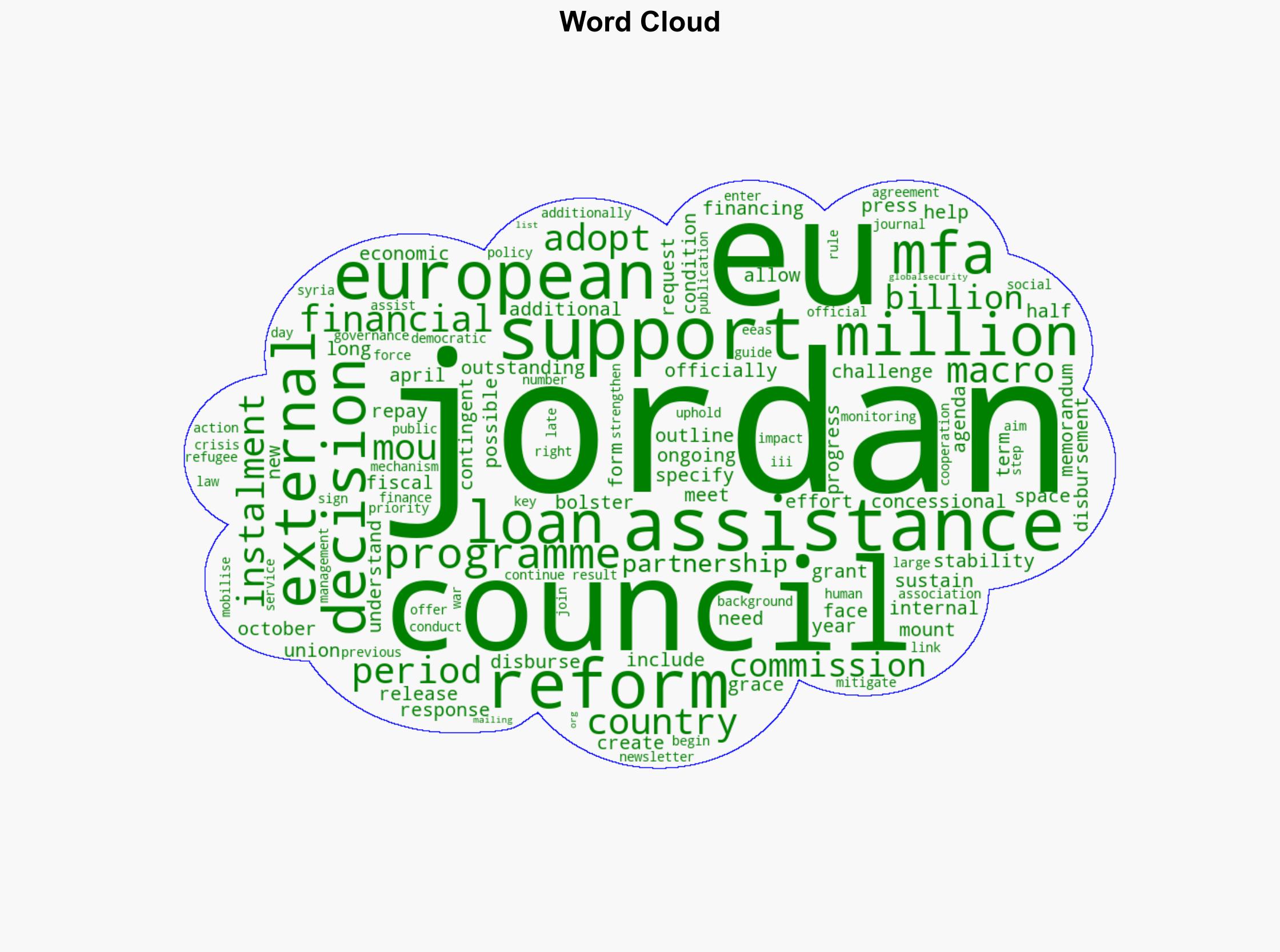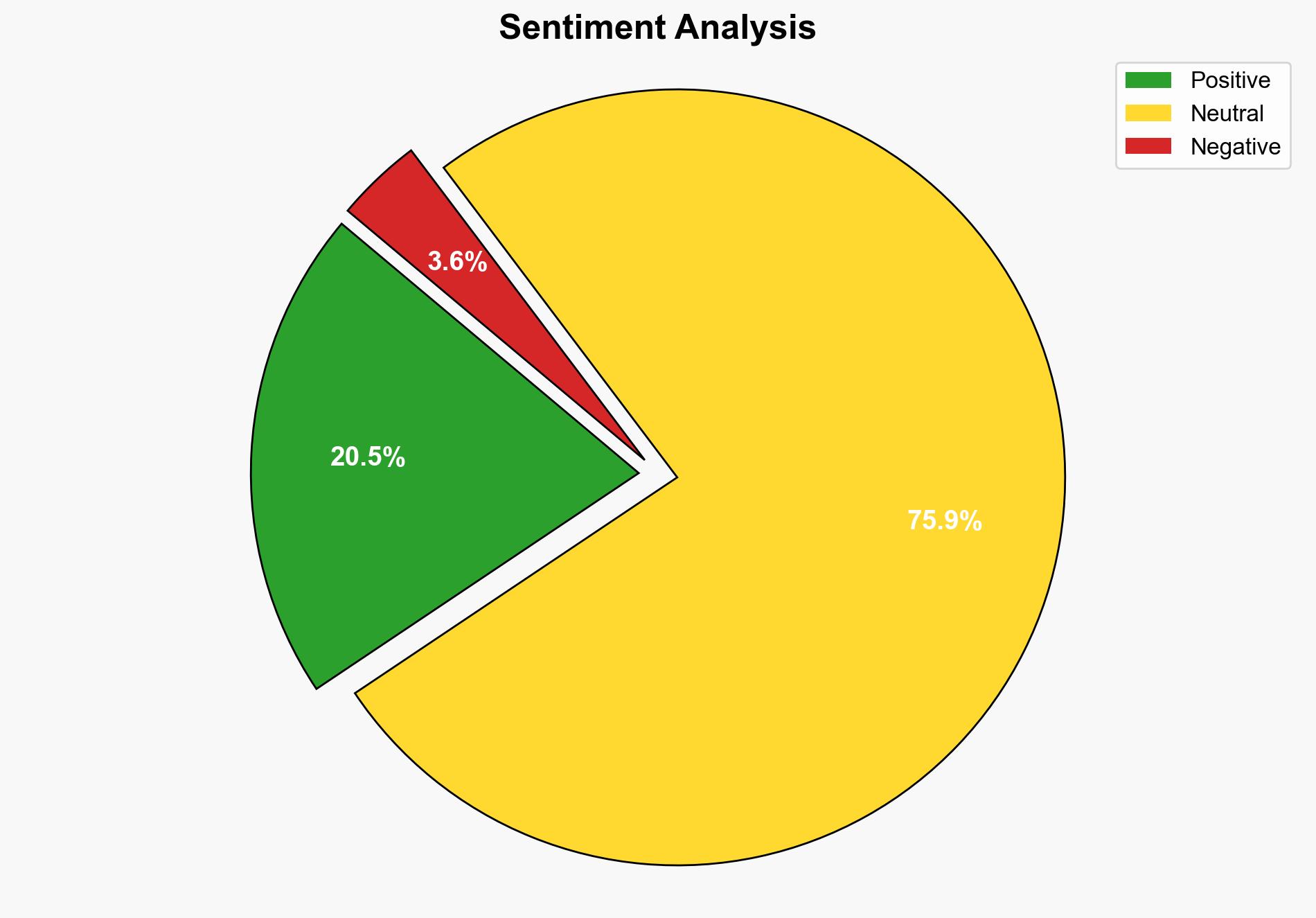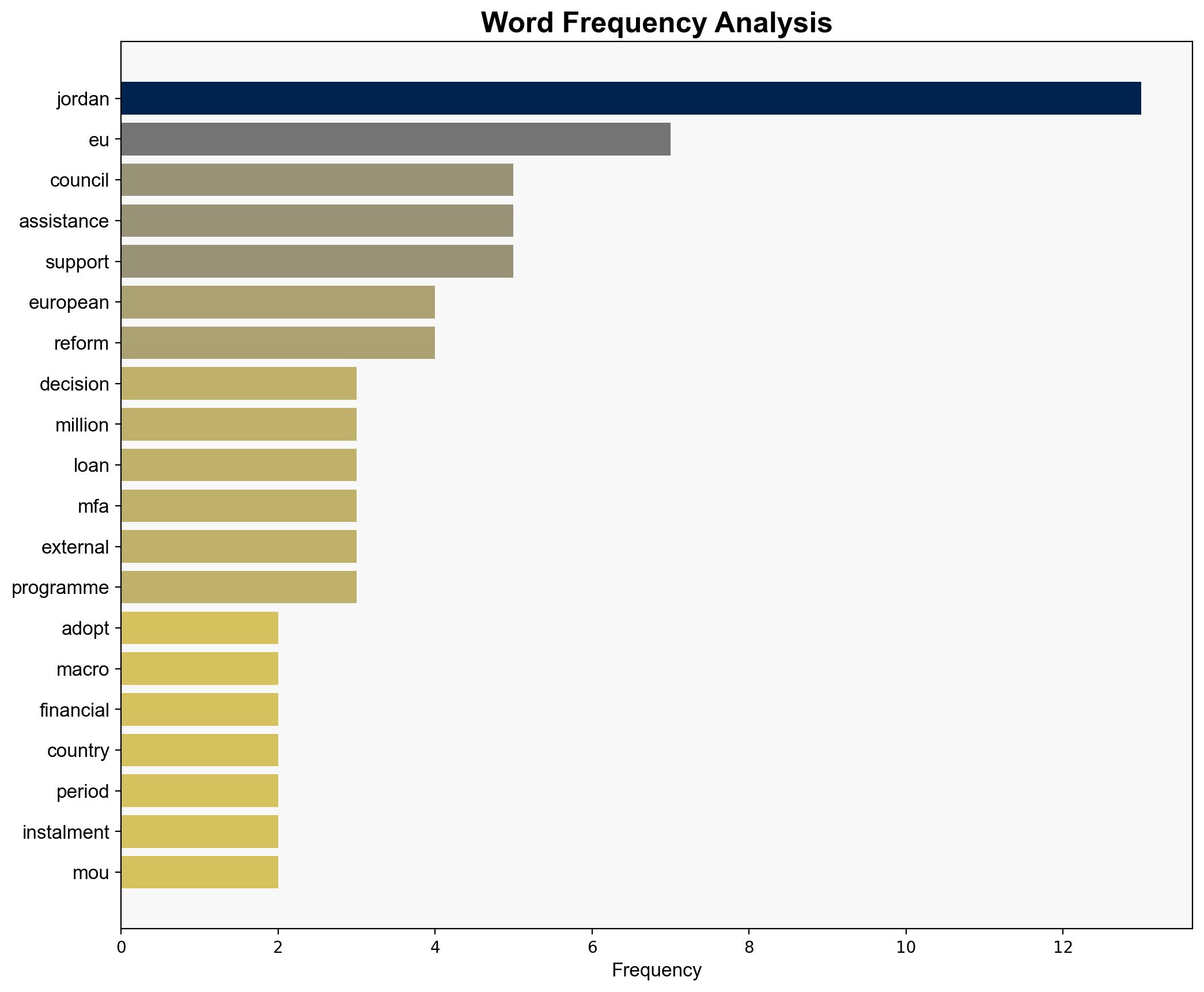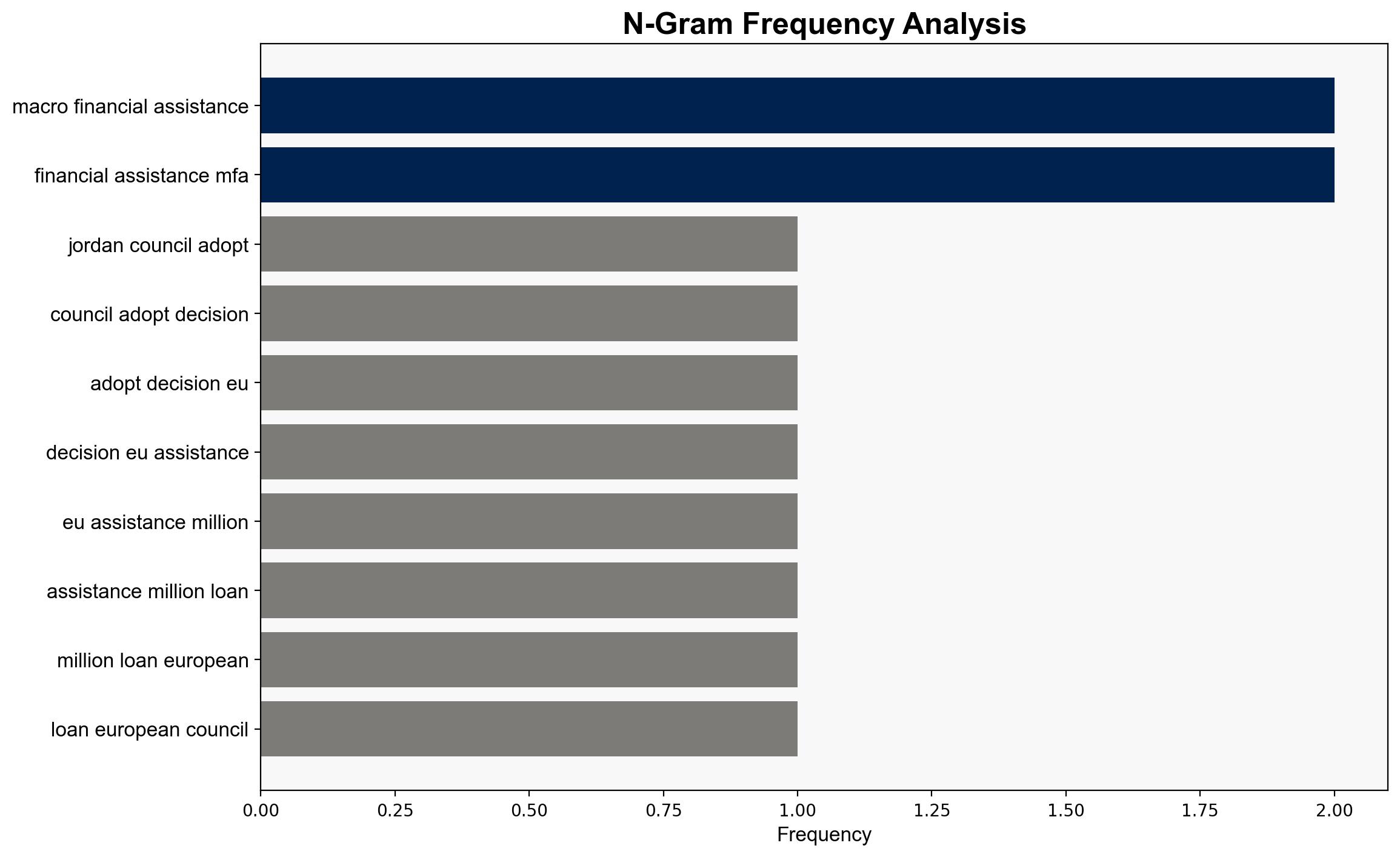Jordan Council adopts decision to provide EU assistance of 500 million in loans – Globalsecurity.org
Published on: 2025-04-15
Intelligence Report: Jordan Council adopts decision to provide EU assistance of 500 million in loans – Globalsecurity.org
1. BLUF (Bottom Line Up Front)
The European Union has approved a €500 million macro-financial assistance package for Jordan to support economic stability and reforms. This assistance, requested by Jordan in October 2023, will be disbursed over two and a half years in three instalments, contingent upon Jordan’s progress in implementing specified reforms. The package aims to address Jordan’s external financing needs and create fiscal space for sustained reform efforts. Monitoring will be conducted by the European Commission and the European External Action Service.
2. Detailed Analysis
The following structured analytic techniques have been applied for this analysis:
General Analysis
The decision to provide €500 million in loans to Jordan is a strategic move by the EU to bolster a key regional partner facing significant challenges. The assistance is designed to support Jordan’s economic stability amidst internal and external pressures, including the impact of the Syrian conflict and the influx of refugees. The concessional nature of the loans, with favorable repayment terms, underscores the EU’s commitment to supporting Jordan’s long-term economic health. The requirement for Jordan to uphold democratic principles and human rights as part of the agreement reflects the EU’s broader strategic interests in promoting stability and governance in the region.
3. Implications and Strategic Risks
The EU’s financial assistance to Jordan carries several implications and strategic risks:
- Economic Stability: The assistance is crucial for maintaining Jordan’s economic stability, potentially averting a financial crisis.
- Reform Implementation: The success of the assistance hinges on Jordan’s ability to implement agreed-upon reforms, which may face domestic political resistance.
- Regional Stability: Strengthening Jordan’s economy can contribute to regional stability, but failure to meet reform goals could exacerbate regional tensions.
- EU-Jordan Relations: The assistance reinforces the EU’s strategic partnership with Jordan, but any perceived interference in domestic affairs could strain relations.
4. Recommendations and Outlook
Recommendations:
- Enhance monitoring mechanisms to ensure timely and effective implementation of reforms in Jordan.
- Encourage dialogue between Jordanian stakeholders to build consensus on reform priorities.
- Consider additional support measures, such as technical assistance, to facilitate reform implementation.
Outlook:
In the best-case scenario, Jordan successfully implements the required reforms, leading to improved economic stability and strengthened EU-Jordan relations. In the worst-case scenario, domestic challenges hinder reform efforts, potentially destabilizing Jordan’s economy and straining regional stability. The most likely outcome is a mixed scenario where partial reforms are achieved, maintaining economic stability but requiring ongoing EU engagement.
5. Key Individuals and Entities
The report mentions significant individuals and organizations involved in the decision and implementation process:
- European Commission
- European External Action Service
- Jordanian Government





